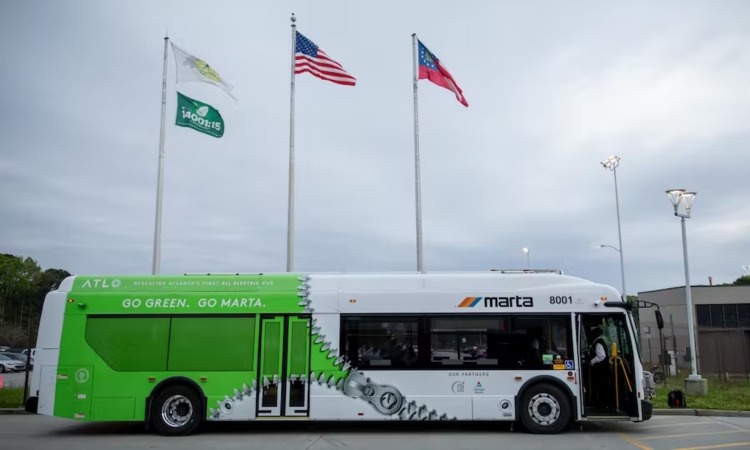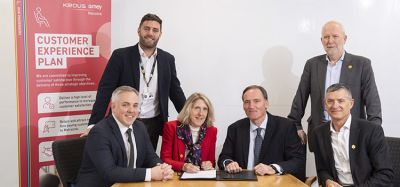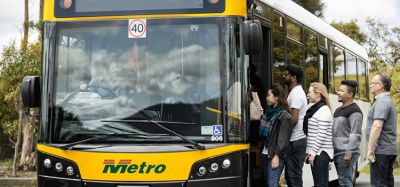MARTA awarded federal grant for new electric buses and charging infrastructure
- Like
- Digg
- Del
- Tumblr
- VKontakte
- Buffer
- Love This
- Odnoklassniki
- Meneame
- Blogger
- Amazon
- Yahoo Mail
- Gmail
- AOL
- Newsvine
- HackerNews
- Evernote
- MySpace
- Mail.ru
- Viadeo
- Line
- Comments
- Yummly
- SMS
- Viber
- Telegram
- Subscribe
- Skype
- Facebook Messenger
- Kakao
- LiveJournal
- Yammer
- Edgar
- Fintel
- Mix
- Instapaper
- Copy Link
Posted: 5 September 2022 | Intelligent Transport | No comments yet
Provided as part of the Federal Transit Administration’s Low or No Emission Program, the $19.3 million funding will allow MARTA to continue transitioning away from diesel-powered vehicles.


Credit: Metropolitan Atlanta Rapid Transit Authority
The Metropolitan Atlanta Rapid Transit Authority (MARTA) has announced that its Sustainability Commitment Program has received a federal funding boost, with the award of a $19.3 million Federal Transit Administration (FTA) Low or No Emission Program, which will be used to purchase 25 new electric buses and charging infrastructure. The buses and charging stations will be housed at MARTA’s Perry Bus Garage and service multiple bus routes in west Atlanta, many in disadvantaged communities and connect to rail stations on both the East/West and North/South Lines.
“We are grateful to the FTA for its continued support of our sustainability efforts,” said MARTA Interim General Manager and CEO Collie Greenwood, “Our goal is to continue adding electric buses to the fleet to help combat climate change and reduce the public health impacts from air pollution, especially in our most vulnerable populations.”
MARTA launched its first electric buses on 1 May 2022, with support from a 2019 $2.6 million FTA Low-No Grant. These six buses replaced old diesel buses and will reduce MARTA’s fleet emissions by approximately 935 short tons of greenhouse gases. In addition, Senator Jon Ossoff, with support from Senator Raphael Warnock, has secured $3.8 million in Congressionally Directed Spending to support the purchase of an additional six electric buses.
FTA Administrator Nuria Fernandez said: “When a transit door opens, whether it is a bus, train, or ferry, it is a great equaliser for everyone in our nation. With this tremendous amount of funding, the President’s Bipartisan Infrastructure Law gives more Americans access to the opportunities that transit creates, more often, in more places. These investments also help us meet our goals of cutting transportation emissions, creating good paying American manufacturing jobs, and helping America’s transit workers prepare for new vehicle technology.”
MARTA plans to continue transitioning away from diesel-powered vehicles, using electric buses to support Atlanta’s first bus rapid transit (BRT) route through Summerhill and for Clayton Southlake and Campbellton Road BRT. MARTA’s remaining bus fleet is made up mostly of compressed natural gas (CNG) buses that contribute to the authority’s decreasing carbon footprint, reducing emissions the equivalent of keeping over 370,000 cars off the road.
If you liked this, you may also be interested in:
▶ Government of Florida awards over $68 million for electric buses
▶ LA Metro awarded $104 million for zero-emission buses and infrastructure
Related topics
Accessibility, Air Quality, Alternative Power, Mobility Services, Public Transport, Sustainable Urban Transport
Related modes
Bus & Coach
Related cities
Atlanta
Related countries
United States
Related organisations
Federal Transit Administration (FTA), Metropolitan Atlanta Rapid Transit Authority (MARTA)
Related people
Collie Greenwood, Jon Ossoff, Nuria Fernandez, Raphael Warnock








